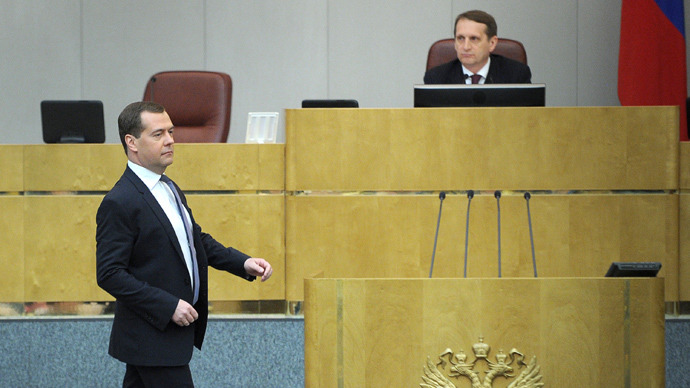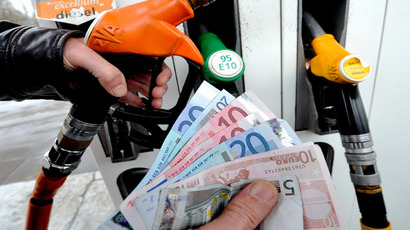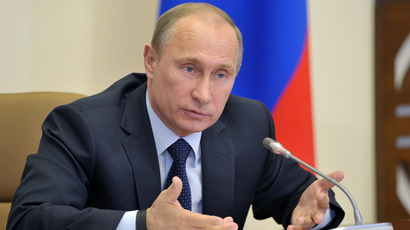Russia to keep budget deficit rule despite recession threat

Despite falling commodity prices, the Kremlin will stick to its fiscal rule which caps the budget deficit at 1% of GDP, Prime Minister Dmitry Medvedev told the State Duma in his annual economic address.
The Russian Prime Minister warned the State Duma that the global
economic recession has a very serious potential to spill over into
Russia.
"The first few months of this year are showing that the tendency
for the world economy to slow persists,” Dmitry Medvedev said.
“There are serious risks here," the Russian Prime Minister
added.
“We had foreseen a slowdown in development connected with the
situation in the global markets,” Medvedev stated adding that
the government has its own vision about what has to be done in
these conditions.
"But these measures have to be discussed in detail with experts,
and with the deputies."
He stressed the need to adhere to the budget rule that sets the
minimum size of the Reserve Fund at 7% of GDP.
"[The rule] makes it possible to improve the macroeconomic
stability of the Russia economy, its investment appeal in the final
analysis, and ensure the strict fulfillment of all the state's
spending commitments. This rule is especially important at a time
when unfavorable scenarios are materializing in other countries, a
recession is taking place, there is a danger of a drop in prices
for hydrocarbons," the Prime Minister said.
"The experience of 2008, the experience of a dramatic drop in
prices for raw materials, ought to have taught us what is to be
done. This is why there is such a budget rule," he
added.
The Prime Minister said the Russian economy has been performing relatively well. Russian GDP grew 3.4% in 2012, while the unemployment rate hit an unprecedented low level – 5.5% against 6.5% in 2011. Consumer-price inflation reached 6.6%, due to “harvest failure, among other factors.” He confirmed forecasts that Russia's grain harvest will total between 90-95 million tonnes in 2013.
$70bn in investments by 2018
“Russia is set to develop in the context of tough economic,
technological and intellectual competition. To face the challenges
in a modern and timely way we must use all our resources,”
Medvedev pointed out.
He also said direct foreign investments in the country could
reach up to $70 billion by 2018.
"Now Russia is ranked sixth in the world and second among the
BRICS states in the volume of direct foreign investments for the
last five years. In general, this is quite a good figure of about
$265 billion," the Prime Minister noted, adding "there is
definitely room for improvement."
He remarked Russia's government institutions and private companies
haven’t suffered any damage from the crisis in Cyprus.
"If we talk about the scope of the losses, I have held several
meetings on this account and can tell you openly: We don't have any
losses. I mean government institutions and even a significant
number of private companies."
All major privatization deals in Russia must be open to public
scrutiny, according to Medvedev.
"The government's privatization plans must be worked out in
advance, and for the long term. Information about every meaningful
transaction must be open to public discussion and scrutiny,"
the Prime Minister noted.
IMF lowers Russian growth forecast
The IMF has cut Russia's 2013 growth estimates by a fraction to 3.4
%. Compared to Europe’s decline the forecast is positive, but still
weak when compared to Asian peers.
The IMF is more optimistic about Russia's economy, more so than the
Russian government.
Last week Andrey Belousov slashed the country's GDP growth forecast
to 2.5% and warned of an impending recession in autumn
Medvedev will hold a meeting with President Putin and other
financial officials next week to iron out the details of Russia’s
economic plan, paying special attention to corruption, capital
flight, and oil dependency.














